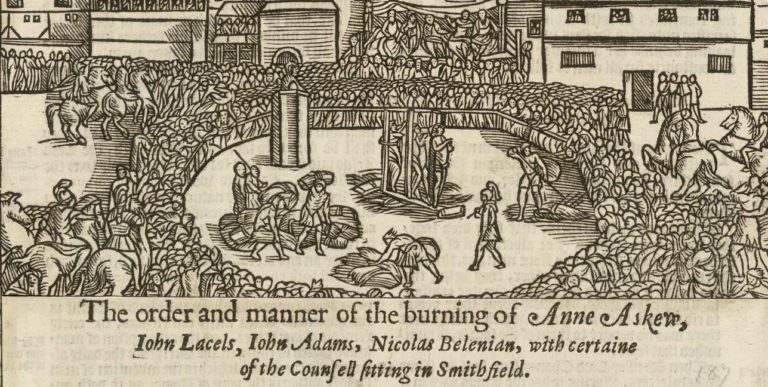This is the third in our series of blog posts on humanity in the image of God. In this instalment Peter Adam explains how thinking about the root and nature of human dignity can help us better understand and proclaim the Gospel.
Why is it that the Bible that it forbids the making of material images or statues of God (Deut. 5:8-10, Lev. 26:1)? One reason is that we humans ourselves are made to be images of God. Humans are meant to be living representations, representatives, reminders of the living God. Dumb, blind and inactive idols show that their gods are dumb, blind, and inactive (Ps. 115:4-8). Humans, made in God’s image, can hear, act, rule, see, and speak (Gen. 1:28-2:25). As Paul said, “Therefore since we are God’s offspring, we should not think that the divine being is like gold or silver or stone—an image made by man’s design and skill” (Acts 17:29).
We humans ourselves are made to be images of God – living representations, representatives, reminders of the living God.
This dignity and destiny of our fundamental identity explains why humans are meant to be like God. Here are five examples of how this is supposed to be expressed in our lives:
- “Be holy, because I the LORD your God am holy” (Lev. 19:1);
- “Do not deprive the foreigner or the fatherless of justice … you were slaves in Egypt and the Lord your God redeemed you from there” (Deut. 24:17,18);
- “Be perfect (in loving your enemies), as your heavenly Father is perfect” (Matt. 5:48);
- “Forgiv[e] each other, just as in Christ God forgave you” (Eph. 4:32);
- “Since God loved us, we also ought to love one another” (1 Jn. 4:11).
Human destiny is to represent God, and it is essential that we understand this to understand both our dignity and fallenness. If we don’t realise that we are made in God’s image, we are likely to underestimate both the good that humans can do, and the damage that humans can do. We are powerful for good or for ill, precisely because we are images of God.
Humanity in Scale
The abandonment of belief in God has led to two contradictory results. One is the promotion of humanity to fill the vacuum left by God: in the words of James Watson, of double helix DNA fame, “If we don’t play God, who will?” Our sin sometimes comes as rebellion against God, wanting to be equal to him: “you will be like God” (Gen 3:5).
The other result is the diminution of humanity. Humans considered apart from God are tiny and insignificant. The vast scale of the universe leads us to think that we are infinitesimal specks of cosmic dust. Similarly idolatry, the worship of other gods, separates us from God and thus demeans, deforms and dehumanises us.
But the Bible shows us that our true significance lies in our relationship to God and his plans.
When I consider your heavens,
the work of your fingers,
the moon and the stars,
which you have set in place,
what is man that you are mindful of him,
the son of man that you care for him?
You made him a little lower than the heavenly beings
and crowned him with glory and honour.
You made him ruler over the works of your hands;
you put everything under his feet… O LORD, our Lord,
how majestic is your name in all the earth! (Ps 8:3-6,9).
Valuable Sinners
Nowadays I never preach about sin without first having preached on the dignity and destiny of humans as made in God’s image. If I do not do this, when I say, “We are sinners”, people hear me saying that we have no value so what we do does not matter. But humans do matter. We have an inherent dignity and a high destiny to fulfil. Our “imageness” is distorted, dysfunctional, mangled and misshapen, but it is still our fundamental reality and it is still present (Gen. 9:6, Jas. 3:9).
As images of God, we are created to depend on God, relate to God, love God, and be close to God. Our greatest need is to be in right relationship with God, and our greatest sin is the distortion of our relationship with God, our distance from him. So the heart of the atonement is not our healing, or the defeat of evil, it is that through the sacrifice of Christ on the cross we can approach our holy God:
Therefore, since we have confidence to enter the Most Holy Place by the blood of Jesus, by a new and living way opened for us through the curtain, that is, his body, and since we have a great priest over the house of God, let us draw near to God with a sincere heart in full assurance of faith… (Heb. 10:19-22).
Humanity: Christ and in Christ
As we are “images of God,” so Christ is “the image of the invisible God.” He is not only a representative of God, he is God in human form. He is “the word made flesh” (Jn. 1:14), and so those who see him see the Father (Jn. 14:9). Believers in Christ are being formed in his likeness, which is the likeness of God (Rom. 8:29,30, 1 Cor. 15:44b-49, Col. 3:9-11). When Christ returns, he will “transform our lowly bodies so that they will be like his glorious body” (Phil. 3:21).
Of course the dignity and destiny of humanity was only fulfilled in Christ. But because it was fulfilled in Christ, it is also then fulfilled by grace in those who are Christ’s, and so fellow heirs with him. Here is our great dignity and high destiny: “We know that when Christ appears, we shall be like him, for we will see him as he is” (1 Jn. 3:2).















